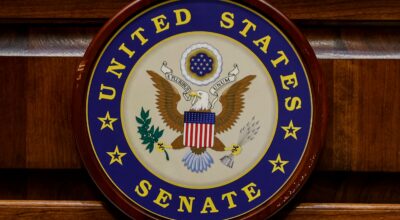
Primer: What is the ‘1619 Project’?
Synopsis: The ‘1619 Project’ is an ongoing initiative launched by the New York Times in 2019 asserting that America’s true founding was in 1619 following the arrival of the first African slaves instead of the signing of the Declaration of Independence in 1776. The initiative is designed to serve as a contemporary intellectual basis for introducing Critical Race Theory (CRT) in K-12 public schools and higher education to undermine the American founding.
A report from 2020 suggested over 3,500 classrooms across America injected the 1619 Project into their social studies, civics, and history lessons. When the Project first launched, it included supplemental curricula in the form of guided readings and workshops available to schools for usage. This expansive effort to erase the American founding in our nation’s classrooms has served to accelerate CRT’s advancement all across the country.
Key ‘1619 Project’ Assertions
- Nikole Hannah-Jones, the primary writer behind the ‘1619 Project,’ admitted that the driving impetus behind the initiative is, “if you consider 1619 as the foundational date of the country, rather than 1776, it just changes your understanding and we call that a reframing of American history.”
- The Project asserts that the War of Independence was fought “to protect the institution of slavery in the colonies.”
- The Project asserts that America’s “founding ideals were false when they were written.”
- The Project asserts that capitalism in America is “uniquely severe and unbridled,” rooted in slavery and the plantation.
- The Project includes an essay that suggests modern opposition to socialized medicine stems from post-Civil War racism when white leaders were “worried about black epidemics spreading into their own communities.”
Rebutting Key Falsehoods of the ‘1619 Project’
- Contrary to the flagrantly ahistorical claims of the Project, the War of Independence was a key reason slavery was eventually abolished. The colonists, in an effort to thwart Lord Dunmore’s Proclamation, armed slaves with the promise of freedom if they fought the British, resulting in thousands of freed slaves by the war’s end.
- By 1804, every northern state had already abolished or set in motion the abolition of the practice of slavery in keeping with the Declaration’s fundamental creed.
- The argument that American capitalism is “rooted in slavery” ironically stems from Confederate “King Cotton” propaganda. Furthermore, there is a longstanding negative correlation between the existence of slavery and income level, meaning capitalism is historically a strong anti-slavery mechanism.
- In 1854, leading proslavery proponent George Fitzhugh argued the precise opposite of what the Project asserts, stating plainly that supporters of free-market capitalism are “at war with all kinds of slavery, for they in fact assert that individuals and peoples prosper most when governed least.”
Conclusion
The American idea is predicated on the fundamental belief that all men are created equal and endowed by their Creator with unalienable rights to life, liberty, and the pursuit of happiness. This revolutionary concept has long served as a bulwark against radicalism, staving off the allure and efficacy of radical ideologies for over two centuries.
The 1619 Project’s mission is to erase the American founding, rewrite history, and eliminate the foundational structures preventing radical revolution from taking place. Efforts to mainstream the 1619 Project’s ahistorical assertions into the classroom are critical for advancing Marxist-inspired CRT into American institutions.
Historians have thus far eviscerated the Project for its myriad inaccuracies, including Sean Wilentz at Princeton who argued in The Atlantic that the Project fails in three critical areas: 1) the American Revolution (specifically regarding the abjectly false claim that the War of Independence was fought to preserve slavery), 2) the Civil War (specifically diminishing Lincoln’s support for ending slavery), and 3) the history of Jim Crow (specifically the claim that for the most part black Americans resisted Jim Crow alone).
Wilentz was so concerned that he led a letter–signed by four other prominent historians–that objected to the Project’s elevation of narrative over historical facts and called for corrections, specifically stating that the Project shows “a displacement of historical understanding by ideology.”
These concerns have since been further emphasized by analysis of the Project’s overall poor quality of research, specifically coming from economic historian Phillip Magness, who dissected the litany of falsehoods and inaccuracies regarding the Project’s flimsy understanding of the history of slavery, free market economics, and its empirically inaccurate assertion of slavery as integral to the promotion of free-market capitalism in America.
Boldly refuting the myths and falsehoods of the 1619 Project is a critical element in stopping cultural Marxism in its tracks. A renewal of America cannot take place if falsehoods, lies, and radical narratives are allowed to supplant the truth of the greatness of the American idea and our founding principles.



